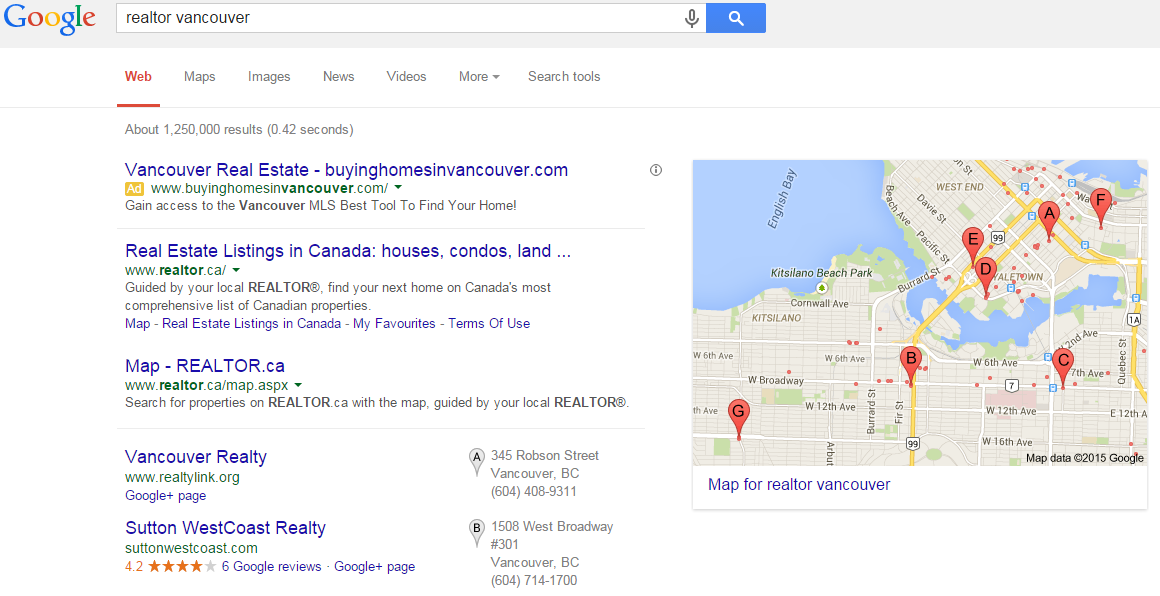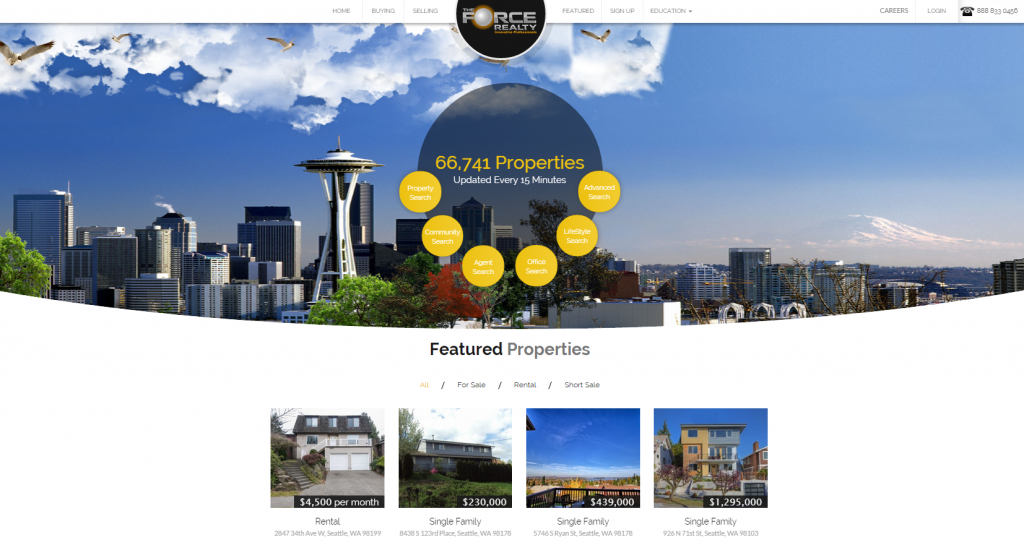 Real estate websites have become increasingly sophisticated as agents work to drive leads online. From listing data, online chat, videos and social media integration – the options can be endless. And with 90% of home buyers searching online, having a great website is a necessity for any agent. So, if you’re doing a website revamp or want to check in with how your site stacks up, here’s our list of the 10 website essentials for any real estate agent.
Real estate websites have become increasingly sophisticated as agents work to drive leads online. From listing data, online chat, videos and social media integration – the options can be endless. And with 90% of home buyers searching online, having a great website is a necessity for any agent. So, if you’re doing a website revamp or want to check in with how your site stacks up, here’s our list of the 10 website essentials for any real estate agent.
1.Have One
While this advice might seem obvious, 45% of small businesses in the US still don’t have a website. While your brokerage likely has a site, you shouldn’t rely on your broker’s website to increase leads. Every agent should also have their own site that they have full control of. Don’t lose out on the 90% of home buyers that are searching online.
2. Be Mobile
This year, mobile search will outpace desktop. Your site should be mobile optimized – ideally responsive – and have mobile features like click-to-call. Google and NAR have published that 89% of new home buyers use a mobile search engine for their research. Don’t give them a bad experience with a site that isn’t mobile friendly.
3. Optimize for Local Search
Local search is the when a search engine delivers results that are specific to a geographic region. This means that when you’re working to rank higher in search engines, you should focus on “Real Estate Agent Toronto” instead of “Real Estate Agent”. Just how important is local search for real estate? 69% of home buyers that take action on a real estate website started with a local search term, like “Houston homes for sale”.
4. Display your Value
Your website is your opportunity to show potential clients how great of an agent you are. Have a clear value proposition displayed right on your homepage – ie Buying and Selling Luxury Properties in Houston since 2002 – and make sure to have a bio page that highlights your qualifications and experience. Testimonials from past clients are great for social proof!
5. Use Great Visuals
Does your website have “curb appeal”? Great images, design and videos are so important for keeping visitors from dropping off. Here’s one of our favorite examples.
6. Make it Easy to Search Properties
The most important features of a real estate website? According to a recent survey of home buyers, photos and detailed information about properties for sale are the most important. Have easy-to-use property search functionality on your website with great listing descriptions.
7. Have a Blog
Blogging regularly is an effective and inexpensive digital marketing strategy. Blogs are great for showing yourself as an expert in the local real estate market, improving your local search ranking, providing info & tips for potential clients and converting visitors into clients. Whether you choose to have your blog on a subdomain (blog.clientlinkt.com) or as a subfolder (quicklinkt.com/blog), blogging regularly is a definite must for any real estate website.
8. Integrate with Social Media
Are you working to find leads and connect with clients on social media? Integrate your website with your social profiles by adding Activity Feeds that show recent Tweets & Facebook posts, a Like Box that let’s website visitors Like your Facebook page without leaving your site and Share buttons.
9. Be Referral Friendly
Add a Refer Us form to your website. Using separate forms for referrals from past clients and referrals from agents in other centers is a simple way deliver high quality leads from your website. With QuickLinkt, you can add Refer Us forms to your website and be automatically notified everytime you’re sent a referral.
10. Make Contact Info Easy to Find
At the end of the day, the goal of your website is to grow your client base and increase closings. To turn website visitors into revenue, have your contact info prominently displayed on each page of your site and have one-touch calling and email functionality on your mobile site.







 Any real estate agent has likely heard of their Sphere of Influence. Your Sphere of Influence is also your Referral Network – the personal and business connections that send you referrals and connect you with new clients ready to buy or sell. It’s the most powerful tool for decreasing advertising costs and minimizing your time to close – the golden ticket for new agents to get their feet on the ground and veterans to stay competitive.
Any real estate agent has likely heard of their Sphere of Influence. Your Sphere of Influence is also your Referral Network – the personal and business connections that send you referrals and connect you with new clients ready to buy or sell. It’s the most powerful tool for decreasing advertising costs and minimizing your time to close – the golden ticket for new agents to get their feet on the ground and veterans to stay competitive.